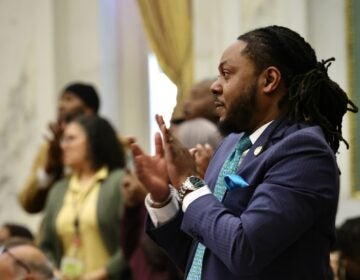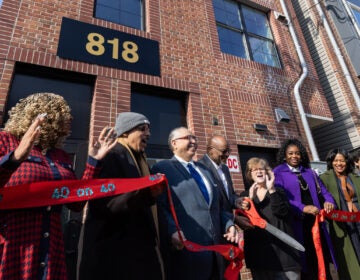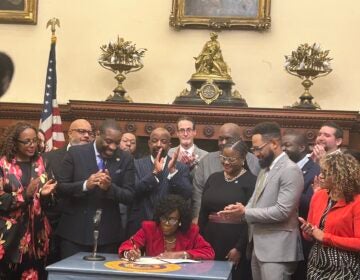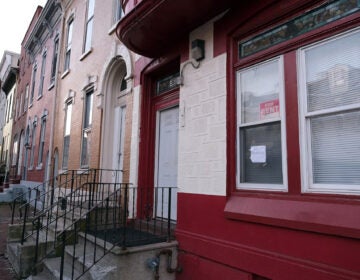Philly’s zoning board may gain leverage to hold private developers more accountable
A bill moving through City Council would require developers to legally commit to creating affordable housing they’ve promised the community.
Listen 1:11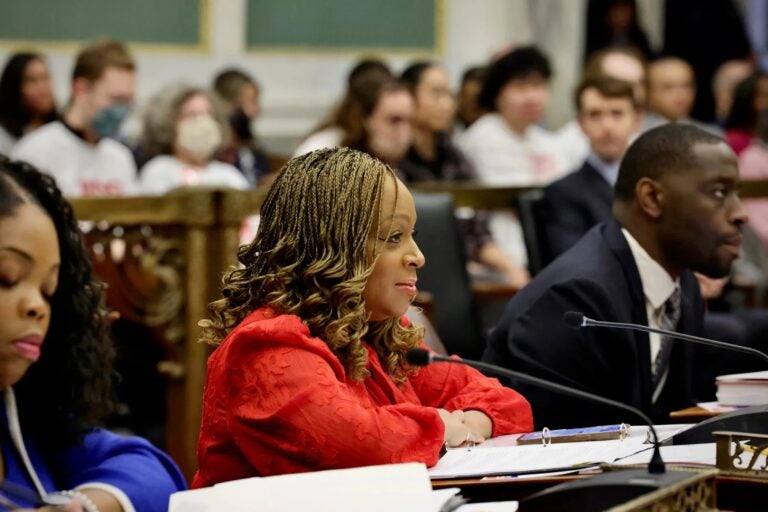
Philadelphia City Councilmember Jamie Gauthier in 2024. (Emma Lee/WHYY)
Have a question about Philly’s neighborhoods or the systems that shape them? PlanPhilly reporters want to hear from you! Ask us a question or send us a story idea you think we should cover.
Philadelphia lawmakers have advanced legislation designed to hold accountable real estate developers who have promised to include affordable units in their residential projects.
The measure, introduced in January by City Councilmember Jamie Gauthier, would give the Zoning Board of Adjustment more leverage when these developers request a variance — permission to deviate from the law — to build a structure with more density than the zoning code allows. This is typically done to keep unit costs low.
If the bill is passed by the full council, the ZBA would effectively have the power to turn down developers who refuse to make a legal commitment to the independent board, as well as the relevant registered community organization, that they will create the affordable units residents are expecting in exchange for supporting a denser project.
At the moment, these agreements are typically verbal and not codified in a proviso, leaving communities with no way of ensuring that a developer will follow through on including the affordable units they’ve promised.
“As we all know, unless it’s written down somewhere, many of these commitments don’t actually pan out. And this leads to mistrust in the zoning process and RCOs being understandably suspicious of large developments because they’ve been burned too many times,” said Gauthier during a Wednesday hearing held by City Council’s Rules Committee.
The bill is part of a broader legislative campaign aimed at expanding and protecting the city’s supply of affordable housing amid an ongoing crisis. The second phase of the effort, dubbed “Defying Displacement,” includes legislation designed to cut red tape for developers in the affordable housing space, while also holding them more accountable to residents seeking to mitigate the adverse effects of new residential developments, particularly in gentrifying neighborhoods.
Under the measure, the city’s Department of Planning and Development would be responsible for enforcing the provisos. The zoning board would also not be expected to negotiate these legal agreements. That would happen between the developer and the RCO.
During Wednesday’s hearing, proponents argued the bill helps level the playing field for registered community organizations, which typically lack the resources to fight developers who have reneged on their commitment to residents.
“We need to ensure that developers understand that affordable housing requirements are more than just checking a box and getting a building project done. But they are a positive and proactive step in ensuring quality of life in communities and protecting accessibility for those who are sometimes systematically excluded,” said Rev. Jay Broadnax, a board member with the West Powelton/Saunders Park RCO.
Ian Hegarty, executive director of the zoning board, told lawmakers he “applauds the intent” of Gauthier’s legislation but believes it would bestow powers that fall outside of the body’s purview. While the ZBA regularly adds provisos that limit the impact of a requested variance, it generally avoids brokering agreements between developers and community organizations.
And he said the board doesn’t have the power to mandate those agreements.
“The board would prefer a legal approach that addresses these important policy decisions through the zoning code and maps, rather than on an ad-hoc basis through provisos,” said Hegarty.
The Building Industry Association of Philadelphia, an advocacy group for developers who do work in the city, also opposes Gauthier’s bill, saying it would hurt housing production.
“This really would politicize ZBA and that is the last thing we want to do,” said President Mohamed “Mo” Rushdy in January. “It opens up a can of worms and will basically drive developers away from building in the city.”
The measure could be voted on as soon as June 5.

Get daily updates from WHYY News!
WHYY is your source for fact-based, in-depth journalism and information. As a nonprofit organization, we rely on financial support from readers like you. Please give today.




